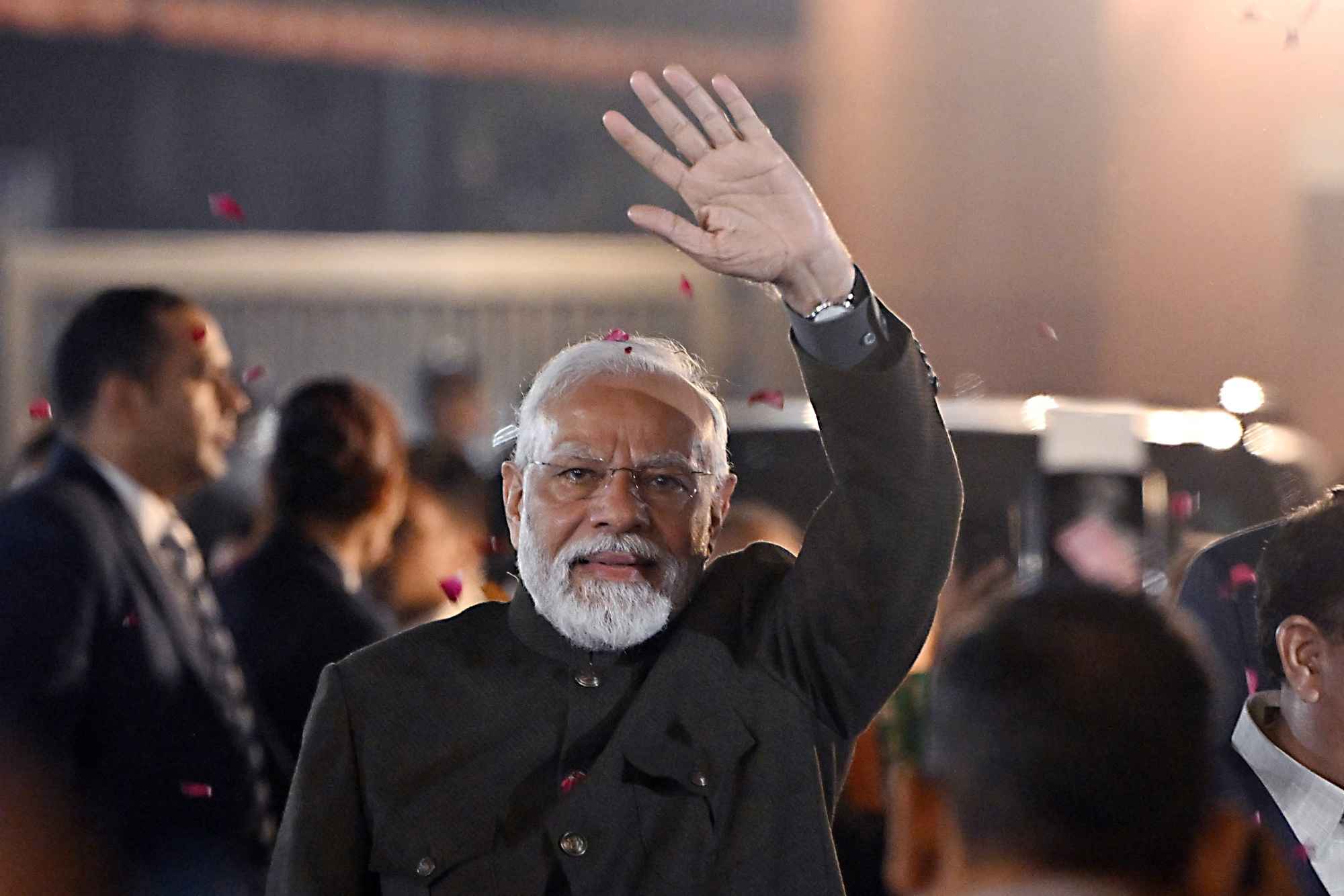Even if defeating Modi’s Bhartiya Janata Party (BJP) appears to be an arduous undertaking, India’s opposition parties still have some reasons to be positive. This is because the BJP has performed exceptionally well in a number of major states.
Following the victory of Narendra Modi’s Hindu nationalist ruling party in three out of five important state elections, the opposition in India is facing a “herculean task” to turn around its fortunes in advance of a general election that is scheduled to take place in the spring, according to experts.

There were approximately 160 million people who were eligible to vote in the elections that were held throughout the month of November. These elections included the most populous states of India, Madhya Pradesh and Rajasthan, as well as Chattisgarh, Telangana, and Mizoram. They were held in India.
Mr. Modi’s Bhartiya Janata Party (BJP) regained power in the states of Rajasthan and Chattisgarh, which were formerly strongholds for the Congress, the main opposition party. Additionally, the BJP maintained its dominant position in the central region of Madhya Pradesh, as the results were released on Sunday and Monday.
Telangana, which is located in the southern region of India, was the only state that Congress was able to win. On the other hand, the election in Mizoram was dominated by two local parties, with the BJP coming in a distant third.
What Modi’s state elections wins signal for India’s national election

Mr. Modi’s BJP workers, who are convinced that they can deliver him a record third term as Indian prime minister, greeted the Indian parliament on Monday with chest-thumping sloganeering. They are confident that they can deliver him a record third term.
The Prime Minister expressed his gratitude to the voters for “their unwavering support” in the states where his party emerged victorious. The results in Chhattisgarh, Madhya Pradesh, and Rajasthan suggest that the people of India are solidly with politics of good administration and development, which the @BJP4India stands for, according to a post that Modi made on social networking site X.
While expressing gratitude to the people of Telangana, Rahul Gandhi, the head of the Congress party, admitted defeat in the states in which his party emerged victorious. An article that he authored on X stated, “The battle of ideology will continue.”
The results were being closely monitored in advance of the general election, which is anticipated to take place in May and is the greatest democratic exercise that has ever taken place anywhere in the globe.

Yashwant Deshmukh, a polling specialist with the organization C-Voter, stated that “after these results, it looks like there is no stopping Modi.” He went on to say that it would be a “herculean task” for the opposition to be able to stop Modi from becoming the prime minister of India.
In spite of the headline losses, however, there were glimmers of promise in the state results, according to Dr. Anand Kumar, a retired professor of sociology at Jawaharlal Nehru University. He stated that there were glimmers of hope.
According to Dr. Kumar, more people are now returning to the Congress as an alternative after two election cycles in which the BJP and Mr. Modi have dominated Indian politics. He cited the fact that the grand old party of Gandhi and Nehru secured a vote share of almost forty percent or more in all of Rajasthan, Chhattisgarh, and Madhya Pradesh as evidence of this trend.
“It is now up to them to convert these vote shares into seats,” the speaker said. “At the moment, Indian voters are impressionable, and they have the potential to be impressed if the opposition approaches them in an effective manner,” he stated.
Dr. Kumar contends that anti-incumbency can never be ruled out on the national stage, despite the fact that state elections in India are often contested on concerns that are particular to the local community.
At a time when India is confronting several issues, including rising unemployment and fuel prices, anxiety among many over mounting attacks by Hindu nationalists on the country’s minorities, particularly Muslims, and a narrowing space for dissent and a free press, the elections that will take place in May will take place at a time when several of these challenges are occurring.
And despite the fact that Mr. Modi may continue to enjoy amazing levels of personal popularity, his party has come into conflict with a number of significant groups of voters during his second term. None of these groups of voters has been more vocal than the farmers of northern India, who have protested and ultimately forced a reversal of course on a set of significant agricultural reforms.
India’s opposition in 2019, when Mr. Modi won by a surprise landslide, was criticised for failing to show a cohesive front in order to capitalize on any unhappiness with the government. This was one of the criticisms levelled against the opposition. The opposition in India, which had previously been fragmented, has recently forged an unprecedented alliance consisting of 28 parties led by Congress and termed it “INDIA.” This will not be the case in the following year.
Using the argument that India is a democracy and the idea of incumbency, Dr. Kumar stated that the Bharatiya Janata Party (BJP) is a party that can be stopped. Over the course of the past nine years, they have proven to be utterly incapable of keeping the commitments they have made. A further factor that contributes to their failure is the fact that they engage in hateful politics in India, which has had an effect on the secular society.
Imphal Congress march: Rahul Gandhi’s Nyay Yatra and 2024 Indian elections








